Description
Growing older is a process with numerous gradual or sudden changes over time. For staff supporting people with intellectual disabilities, it may be difficult to recognise these changes or know how best to meet their changing needs. People with intellectual disabilities often age biologically at a younger chronological age than the general population, and many will have very different life experiences of getting older, for example having missed out on work, having a family and developing long-term relationships. These factors can adversely affect self-esteem as well as sources of financial and social support to fall back on as they grow older.
These new resources address a significant gap in the knowledge and practice of supporting people with learning disabilities as they grow older. Both aim to help staff and others to improve their understanding of how growing older may affect individuals, and ways of providing good support to people with learning disabilities so that they can:
- age well through staying healthy, keeping friendships and connections and adapting their lifestyle as necessary;
- cope with challenges and difficulties they may face, particularly as they become frailer and lose some independence.
Through knowledge content, exercises, key learning points and video clips of older people with learning disabilities talking about their experiences of growing older, the materials will help support staff to explore how planning for and providing good support can make a positive difference to individuals’ lives in the key areas of:
- Emotional well-being
- Health
- Being active and involved
- Home life
- Dying well
Throughout the learning process, the themes of person-centred planning, good communication, and building confidence and encouraging independence are central to the development of good support.
The training pack provides the resources needed to deliver training on growing older and comes with guidance on running each session, together with online exercise sheets and handouts, presentation slides, video clips and other resources. The self-study guide (also included in the training pack) can be purchased separately and contains a self-study route with access to the video clips online.

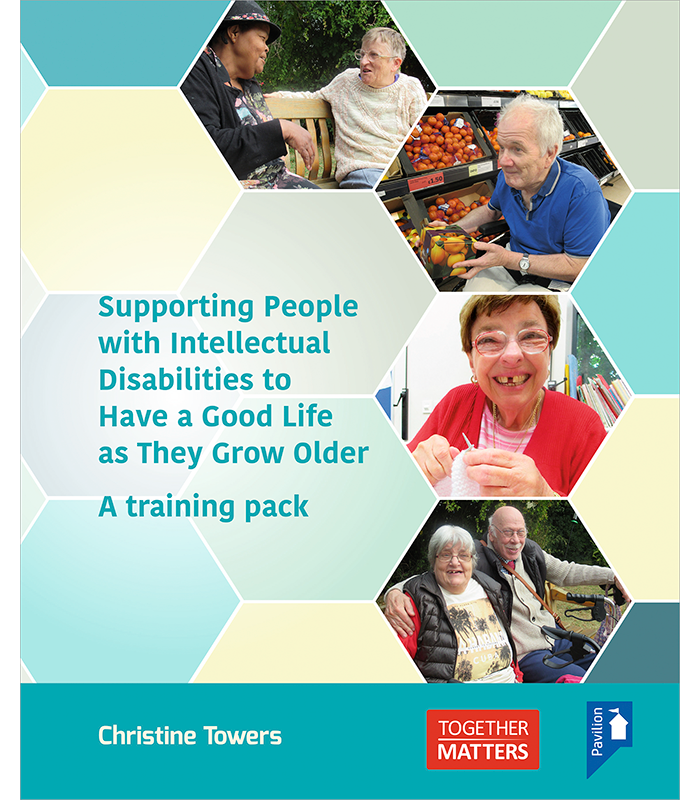
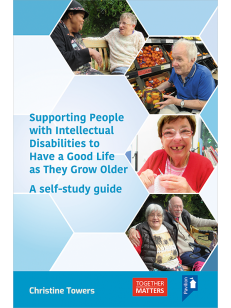
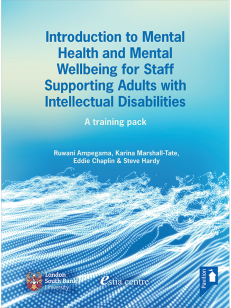
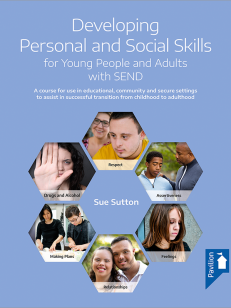
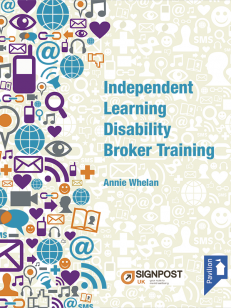
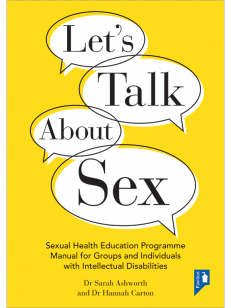
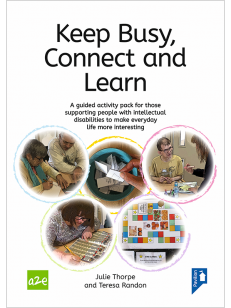
Dame Philippa Russell DBE –
The past decade has seen greatly increasing life expectancy for all of us and a growing debate about how we can ‘age well’ and enjoy productive and valued later lives. Older people with intellectual disabilities are also living longer, and are part of the first generation who are likely to outlive their parents, often their primary carers. But there are challenges. As the NICE Guideline on Care and Support for People growing Older with Learning Disability observes, longer lives mean that we must start proactive conversations about planning for the future much earlier well before a crisis or life changing event occurs. Planning well for later life matters for all of us. These conversations can be difficult, with many family carers anxious to avoid confronting the reality that they are not immortal! Commissioners and practitioners may similarly ignore the importance of future planning which builds on people’s strengths, aspirations and social networks in order to create, as one parent described it, ‘a life worth having, not just a mere existence.’
This training pack offers an invaluable resource for positive and realistic future planning, acknowledging the potential disadvantage and discrimination experienced by many people with learning disabilities, but also building on their strengths and aspirations. The training materials explore the potential changes imposed by ageing on us all, including health needs; housing options; maintenance of social networks and the management of age specific challenges such as finance, mobility and end of life care. But the key theme is the all-important one of achieving an active and fulfilling later life.
Planning for the inevitable transitions in later life can be difficult for us all – and particularly for family carers who may be fearful of contemplating their adult child’s life without family support and for commissioners anxious about disrupting established packages of support. But the pack offers a wealth of practical advice, identifies multiple opportunities for managing transitions well. Very importantly the training activities enable us all to think both differently and positively about ageing and intellectual disability.
Christine Towers challenges us in the Self-Study Guide, which accompanies the training materials, to explore a range of options for creating a safe and satisfying home life as people age. But she also asks us to look beyond traditional ‘services’ and reflect on ‘the idea of people being supported to be active as they grow older’, inviting the reader to consider ‘what might active citizenship mean for the people you support.’ The past decade has transformed our expectations of the potential of people with intellectual disabilities to lead good lives in their families and communities. This training manual takes us further in considering how to plan constructively for later life, how to think creatively about maximising independence and above all else how to communicate and have the all-important conversations about future planning.
Dr Liz Tilley, Senior Lecturer in Learning Disabilities, School of Health, Wellbeing and Social Care, Faculty of Wellbeing, Education and Language Studies The Open University –
People with learning disabilities are living longer and supporting their needs as they age is a key priority for health and social care services. But what does good support look like for this group of people, and how can it be achieved?
Christine Towers has produced a timely set of resources to help improve the quality of life for older people with learning disabilities. The resources comprise an accessible and highly readable self-study guide for independent learners, alongside a training pack that is designed to support group learning. The resources introduce learners to six core areas: understanding growing older; emotional wellbeing; health; being active and involved; home life; and bereavement and dying. Each section includes practical and engaging activities to help learners apply theory to practice. The resources are supported by a number of online videos in which learners hear directly from the author (who has considerable experience developing, managing and monitoring services in this field), alongside self-advocate Ian Davies, who discusses his personal experiences of getting older.
The resources will be highly relevant to staff working as personal assistants, support workers and senior workers in supported living, residential and respite services. They should also be of interest for anyone involved in managing and commissioning services, as the resources set out clearly what good support for this population looks like. The resources will also be relevant to social workers and nurses, and could be embedded within pre-registration education. With mandatory learning disability and autism training coming soon for all health and social care professionals in England, these materials should become a go-to resource for how best to support people as they age.
While there are some references within the resources to the English context, in the main, the principles and practical suggestions provided would be relevant across the UK and for international audiences too.